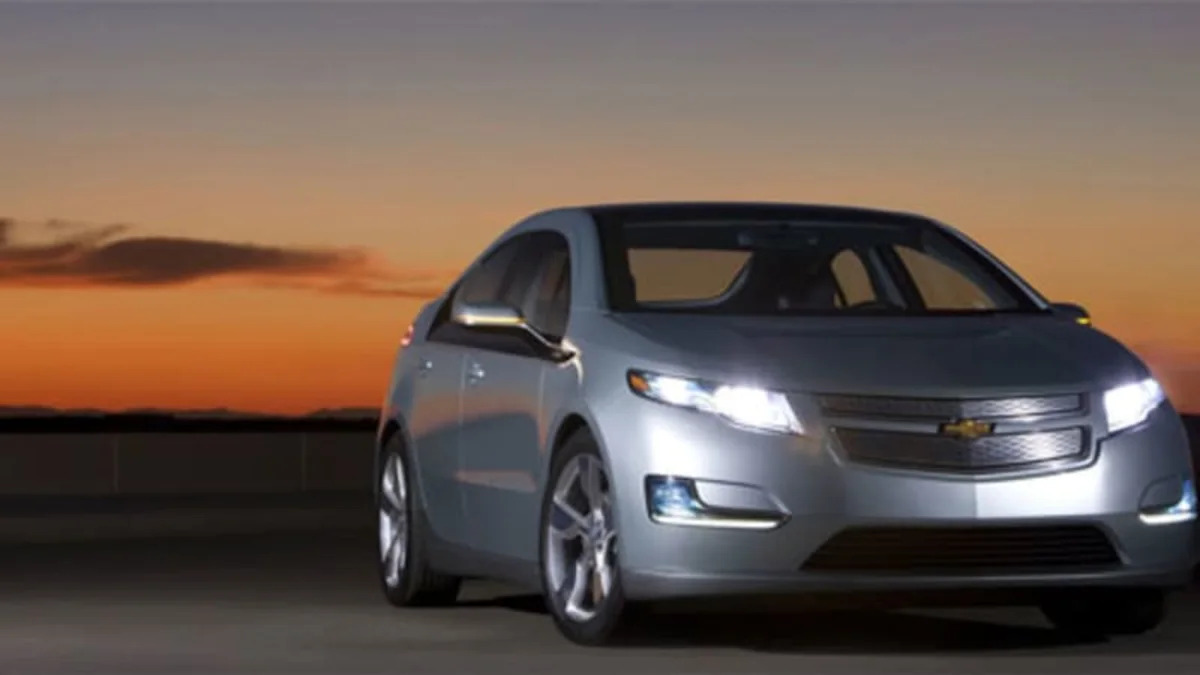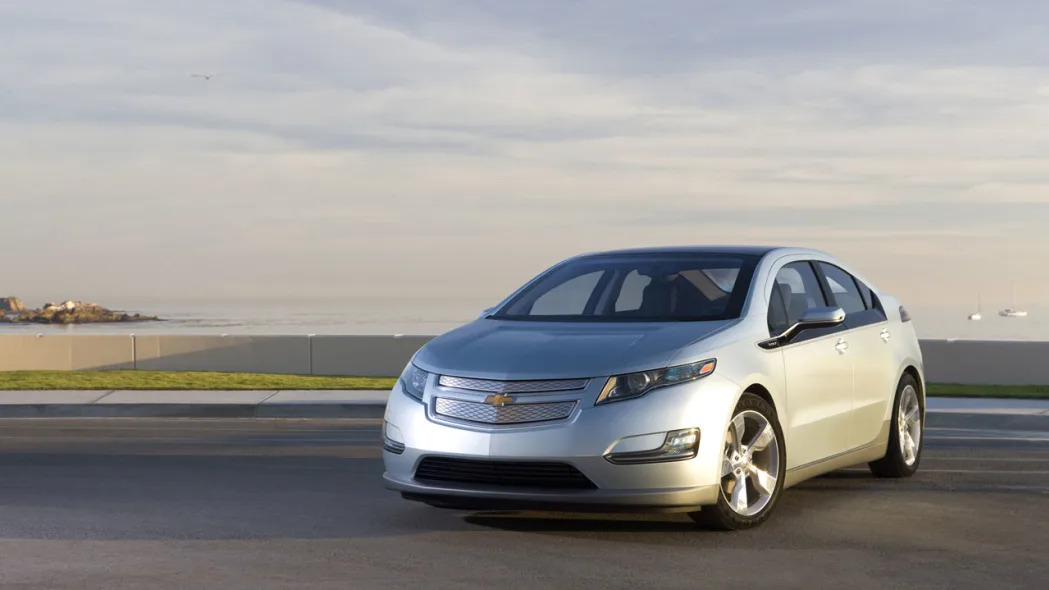Click above for a high res gallery of the 2011 Chevy Volt
Electric vehicle proponents never like to hear news like this, but another study has indicated that plug-in vehicles with longer battery ranges are going to be too expensive to be cost-effective, even though they will reduce greenhouse gas emissions. The problem is that the cost of the batteries required to support a 40-mile electric-only range far outweighs the incremental benefit compared to a shorter range plug-in or non-plug hybrid. The cost of a battery pack for a car like the Chevy Volt is estimated to be as much as $15,000, although no one at General Motors is talking about the specific number publicly yet.
While there are certainly people who are willing to go plug-in regardless of the cost, the reality is that most people simply cannot afford to do so no matter how much they might like the idea of helping the environment. Beyond the up-front cost of batteries there also remains the issue of durability. Tesla Motors, for example, is offering a $12,000 battery replacement plan for the Roadster - which has a battery pack that costs around $30,000. General Motors officials have repeatedly expressed confidence that the battery management systems they have developed for the Volt will allow them to meet the 10-year/150,000-mile durability target for the battery. However, accelerated testing in the lab can only tell so much about battery life. Until these vehicles are in the field and exposed to the wide range of conditions that occur over a number of years, no one can be certain.



Sign in to post
Please sign in to leave a comment.
Continue